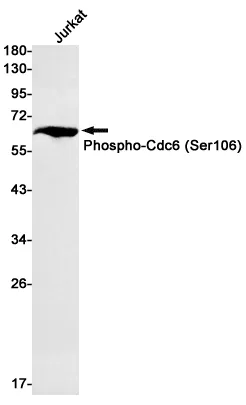Summary
Performance
Immunogen
Application
Background
The tumor necrosis factor (TNF) receptor superfamily is composed of several type I integral membrane glycoproteins that exhibit homology in their cystinerich extracellular domains. Members of this family include TNF-RI, TNF-RII and CD40. Ligands for these receptors can be small, secreted proteins, such as TNF, or type II integral membrane proteins, as is the case for the CD40 ligand, CD40L. While the signal transduction mechanism of the TNF receptor superfamily is poorly understood, activation of TNF-R or CD40 have been shown to induce the nuclear translocation of NFκB. Adapter protein with E3 ligase activity that is involved in many diverse biological processes including cell proliferation, migration, differentiation, DNA repair, platelet activation or apoptosis (PubMed:30352854, PubMed:31076633, PubMed:32268273, PubMed:33991522). Promotes EGFR-mediated signaling by facilitating the dimerization of EGFR and downstream AKT activation thereby promoting cell proliferation (PubMed:30352854). Ubiquitinates SMURF2 through 'Lys-48'-linked ubiquitin chain leading to SMURF2 degradation through the proteasome and subsequently osteogenic differentiation (PubMed:31076633). Promotes 'Lys-63'-mediated ubiquitination of CHK1 which in turn activates cell cycle arrest and activation of DNA repair (PubMed:32357935). In addition, promotes an atypical 'Lys-29'-linked ubiquitination at the C-terminal end of IRS1 which is crucial for insulin-like growth factor (IGF) signal transduction (PubMed:33991522). Regulates activation of NF-kappa-B in response to signaling through Toll-like receptors. Required for normal skeleton development, and for normal development of the respiratory tract (By similarity). Required for activation of RPS6KB1 in response to TNF signaling. Modulates TRAF6 functions. Inhibits adipogenic differentiation by activating pyruvate kinase PKM activity and subsequently the beta-catenin signaling pathway (PubMed:32268273).






